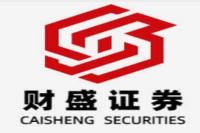Hong Kong Market Rollercoaster: Navigating the Volatility of the Hang Seng and Tech Indices
Meta Description: Dive deep into the recent volatility of the Hang Seng and Hang Seng Tech indices, exploring the underlying factors, key players like Hua Tai Securities, and offering expert insights for investors navigating this dynamic market. Understand the intricacies of the Hong Kong stock market and develop smarter investment strategies.
The Hong Kong stock market, a vibrant hub of Asian finance, recently experienced a dramatic rollercoaster ride. The Hang Seng Index, a barometer of Hong Kong's economic health, plunged over 4% in the early trading session, sending ripples of anxiety through investor circles. The tech-heavy Hang Seng Tech Index mirrored this volatility, initially plummeting more than 7% before a remarkable recovery. What caused this sudden spike in volatility? Was it a temporary blip, or a harbinger of greater market instability? This in-depth analysis delves into the heart of this market fluctuation, examining the key players, the driving forces, and the implications for both seasoned investors and newcomers alike. We'll unpack the narrative behind the headlines, moving beyond simple price movements to understand the complex interplay of geopolitical events, regulatory shifts, and investor sentiment that ultimately shaped this dramatic day in the Hong Kong market. Prepare to gain a deeper understanding of the market mechanics, equip yourself with practical insights, and potentially even refine your investment approach. This isn’t just another market report; it’s your guide to navigating the dynamic world of Hong Kong finance, empowering you to make more informed decisions in the face of uncertainty. We'll explore everything from the performance of individual stocks like Hua Tai Securities to the broader macroeconomic factors impacting the entire market. Stay tuned – it's going to be a fascinating journey!
Hang Seng Index Volatility: Understanding the Ups and Downs
The recent volatility in the Hang Seng Index (HSI) and the Hang Seng Tech Index (HSTI) wasn't a standalone event; it's part of a broader global narrative. Several factors contributed to this dramatic market swing, creating a perfect storm of uncertainty. Geopolitical tensions, notably the ongoing US-China trade relations, played a significant role. Any shift in this delicate balance can trigger significant market reactions, as investors adjust their portfolios to reflect perceived risks.
Furthermore, regulatory changes in China, particularly those impacting the technology sector, have exerted considerable influence. These regulations, while aimed at fostering a healthier and more sustainable tech ecosystem, have introduced an element of uncertainty for investors. The fear of further regulatory crackdowns contributed to the initial sharp decline in the HSTI. This highlights the importance of staying updated on regulatory developments in China, a key driver of the Hong Kong market.
Investor sentiment, often influenced by global economic indicators and news cycles, is another crucial factor. Negative news, whether relating to inflation, interest rate hikes, or global economic slowdown, can trigger sell-offs, exacerbating existing market volatility. Conversely, positive news can fuel buying sprees, leading to rapid market upturns. The interplay of these factors underscores the complex, dynamic nature of the Hong Kong market.
Hua Tai Securities: A Case Study in Market Resilience
Among the notable performers during this period of volatility was Hua Tai Securities, a prominent Chinese investment bank. Its impressive 26% surge stands in stark contrast to the broader market decline, showcasing its resilience and potentially indicating investor confidence in its long-term prospects. This performance warrants a closer look. One possible explanation could be the strategic positioning of Hua Tai Securities. Perhaps the company had anticipated the market downturn and adjusted its portfolio accordingly, enabling it to capitalize on the subsequent rebound. Alternatively, positive news or announcements related to the company itself might have boosted investor sentiment and fueled this significant price increase.
Analyzing companies like Hua Tai Securities provides valuable insights into the dynamics of the Hong Kong stock market. It reveals how individual companies can weather market storms and even thrive amidst volatility. This case study emphasizes the importance of fundamental analysis and due diligence in investment decisions. By understanding a company's financial health, strategic direction, and overall market positioning, investors can make more informed choices and potentially mitigate risks during periods of market turbulence.
Navigating the Market: Strategies for Success
Investing in the Hong Kong stock market, like any other market, requires careful planning and a well-defined strategy. Here are some key considerations:
-
Diversification: Don’t put all your eggs in one basket. Spread your investments across different sectors and asset classes to mitigate risks. This is particularly crucial in volatile markets.
-
Fundamental Analysis: Thoroughly research companies before investing, focusing on their financial health, future growth potential, and competitive landscape.
-
Risk Management: Determine your risk tolerance and stick to it. Avoid impulsive decisions driven by fear or greed. Set stop-loss orders to limit potential losses.
-
Long-Term Perspective: The stock market is inherently volatile. A long-term investment horizon can help you ride out short-term fluctuations and achieve your financial goals.
-
Stay Informed: Keep abreast of market news, economic indicators, and regulatory developments that can impact your investments.
| Strategy | Description | Risk Level |
|--------------------|------------------------------------------------------------------------------|-------------|
| Diversification | Spreading investments across different assets | Low |
| Value Investing | Investing in undervalued companies | Moderate |
| Growth Investing | Investing in companies with high growth potential | High |
| Index Fund Investing | Investing in a fund that tracks a specific market index | Low |
| Active Fund Investing | Investing in a fund managed by a professional portfolio manager | Moderate to High |
Frequently Asked Questions (FAQs)
Q1: What caused the recent volatility in the Hang Seng Index?
A1: The volatility was a confluence of factors including geopolitical tensions (US-China relations), regulatory changes in China impacting the tech sector, and overall global investor sentiment influenced by macroeconomic indicators.
Q2: Is this volatility a temporary blip or a sign of greater instability?
A2: It's difficult to predict with certainty. While short-term fluctuations are common, the underlying factors contributing to this volatility warrant close monitoring.
Q3: How can investors protect themselves during such market swings?
A3: Diversification, risk management, fundamental analysis, and a long-term perspective are crucial in mitigating risks during volatile periods.
Q4: What is the role of regulatory changes in China in shaping the Hong Kong market?
A4: Regulatory changes, particularly those impacting the tech sector, introduce uncertainty and can significantly impact investor sentiment and market movements.
Q5: Should I invest in the Hong Kong market now?
A5: The decision to invest depends on your individual risk tolerance, investment goals, and a thorough understanding of the market dynamics. Consult with a financial advisor for personalized guidance.
Q6: What is the outlook for the Hang Seng Index in the near future?
A6: Predicting the short-term future of the HSI is challenging. The market's direction will depend on the resolution of the various factors influencing its performance. Keep abreast of market news and analysis for updated insights.
Conclusion: Embracing the Challenges, Seizing the Opportunities
The Hong Kong stock market, while volatile, presents both challenges and opportunities for investors. By understanding the underlying factors driving market movements, adopting sound investment strategies, and staying well-informed, investors can navigate the complexities of this dynamic market and potentially reap significant rewards. Remember, informed decision-making is key to success in the world of finance. Stay vigilant, stay informed, and stay adaptable. The future of the Hong Kong market is unwritten, but with the right knowledge and approach, you can write your own success story.



